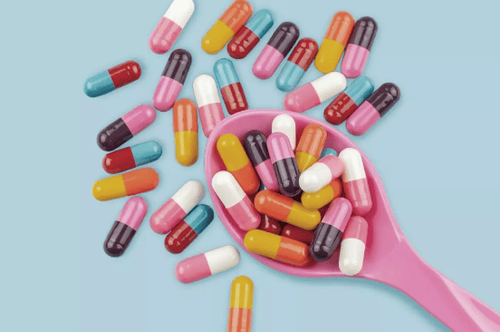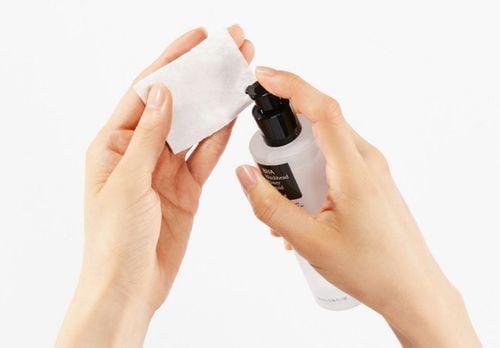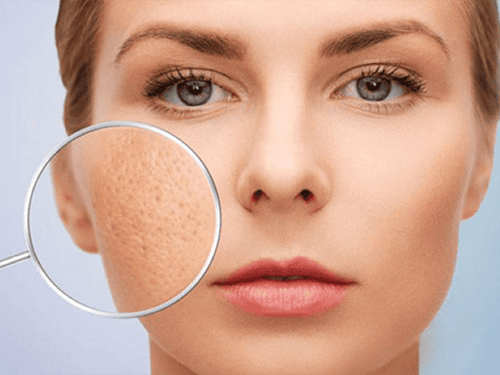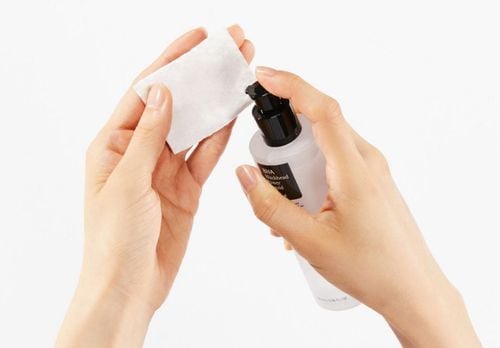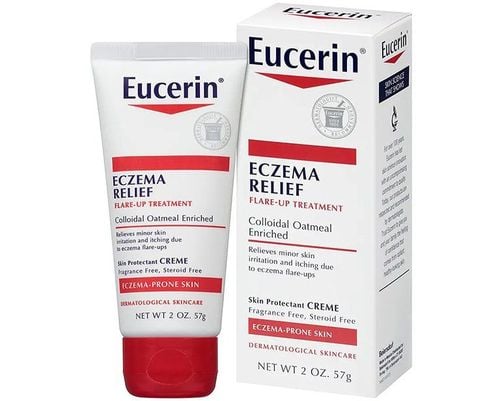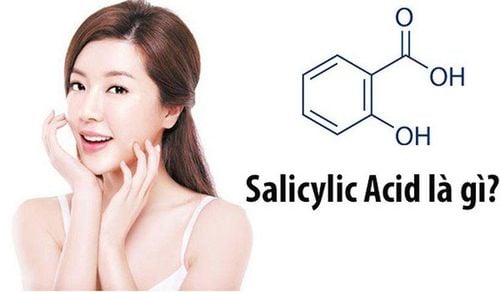This is an automatically translated article.
Acne on the chin is a rather uncomfortable condition because it often causes pain and recurs many times. Even chin acne can creep along the jawline and proliferate rapidly overnight. This is a condition related to the hormones in the skin of the sufferer.
1. What is the condition of acne on the chin?
According to dermatologists, acne on the chin is largely due to hormonal and genetic disorders.
Chin acne affects more women than men. Women who develop acne after the age of 23 usually find it mainly on the chin, jawline, and around the lower cheeks. The fact that chin acne occurs in an adult woman is much different from that of a teenager.
Chin acne usually appears as cystic acne (large, red bumps) or nodules (whiteheads that never break on the surface), caused by an increase in the production of natural oils. below the skin.
Normally, the skin will secrete a thin layer of oil, distributed on the surface to keep this part always soft and shiny. However, when oil is overproduced, excess oil can combine with other debris on the skin's surface to clog pores. This is the condition that causes acne.
Another favorable condition is that the chin is also an area that people are easy to touch, for example, using hands against the face, contaminating more dirt and spreading oil and sebum.
Dermatologists also recommend that, no matter what causes acne on the chin, it should be left alone and not squeezed.
2. What causes acne on the chin?
2.1 Endocrine disorders related to the menstrual cycle According to dermatologists, acne on the chin tends to appear in the second half of the cycle or premenstrual - right before the upcoming period. This is explained by the fact that during the first half of the cycle, the amount of estrogen in the blood increases and in the second half (from day 14 to day 28) the amount of progesterone will prevail to replace it. At this time, the body also produces more testosterone, a hormone that increases the size and activity of the skin's oil glands. This means that the oil glands become larger, the pores are more blocked. As a result, there is more space for bacteria to enter and create acne spots on the skin.
2.2 Due to sleep disorders According to a recent study, the risk of psychological stress increases by 14% for every hour of sleep lost in 1 night. This can lead to abnormalities in the structure and function of the skin.
Another factor that connects sleep deprivation with acne formation is increased insulin resistance. This acne is explained by insulin resistance which can increase blood glucose - one of the main causes of acne.
On the other hand, psychological and physical stress will increase the levels of stress hormone (cortisol) in the body. So, when you don't get enough sleep, your skin will look dull, not plump and fresh. What's more, cortisol is a hormone that also plays a role in sebum production - so the skin is more prone to breakouts.

Rối loạn giấc ngủ có thể gây mọc mụn ở cằm
2.3 Use of birth control pills The hormones found in combined oral contraceptives can help combat the appearance of acne on the skin because they reduce androgens circulating in the blood, indirectly reducing production. sebum. However, when stopping the medication suddenly, those hormones kick back in, which can lead to overproduction of sebum, which can lead to breakouts.
2.4 Due to improper mask application The main cause of acne formation on the chin after applying the mask is due to the skin being blocked, the breath and warm, humid air circulating behind the mask is stagnant. At the same time, the amount of oil and sweat on the skin is also trapped, creating the perfect environment for bacteria on the skin to thrive, leading to clogged pores and the appearance of acne spots on the chin.
3. How to improve the condition of acne on the chin?
To treat acne, the first thing every person needs to have a daily care routine is at least wash their face in the morning and evening with a gentle cleanser to remove excess oil and dirt on the skin. Look for products that contain ingredients like: salicylic acid (this is key to treating acne because it helps break down the oil-secreting structure in the pores), glycolic acid, and benzoyl peroxide.
All these ingredients help to break the bonds between dead skin cells, remove them from the surface of the skin and dissolve excess oil without disrupting the pH balance of the skin.
Another highly effective product worth trying is retinol . Not only does it have anti-aging properties, this ingredient is actually very good at unclogging pores – so they have an acne benefit.
If the above over-the-counter acne medications do not work, see a dermatologist for prescription acne treatment, such as: Antibiotics; Benzoyl peroxide; Cream or oral retinoid.
When chin acne has healed, leaving acne scars such as brown or red spots appearing on the skin, the use of alpha hydroxy acids, such as glycolic and lactic, can help fade them.

Khi bạn bị mọc mụn ở cằm nên gặp bác sĩ để được thăm khám và kê đơn nếu cần thiết
4. What foods help get rid of acne on the chin?
Unfortunately, there is no magic diet that can reduce the appearance of acne on the chin. Because this condition is largely a direct result of the interaction between hormones and genetic factors in the body, not related to the type of food consumed.
However, there are still a small number of people who are sensitive to milk, and for these people, limiting the amount of cow's milk, cheese and yogurt that should be done can help limit Prevent acne formation on chin.
In conclusion, acne on the chin is a common phenomenon that can occur throughout adulthood, especially in women. Endocrine disorders are often responsible for stimulating excess oil production in the chin, which can trap skin cells or dirt and bacteria, contributing to acne. However, each person can prevent the development of chin acne by practicing good skin hygiene. At the same time, if acne does form, it is necessary to follow the treatment methods starting with creams and ointments or prescribed by a dermatologist so that the acne can be reduced quickly without leaving unsightly acne scars.
Please dial HOTLINE for more information or register for an appointment HERE. Download MyVinmec app to make appointments faster and to manage your bookings easily.
References: medicalnewstoday.com, womenshealthmag.com, teenvogue.com



